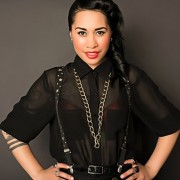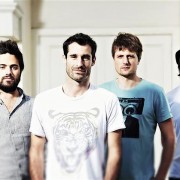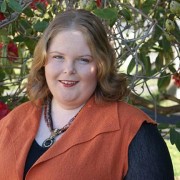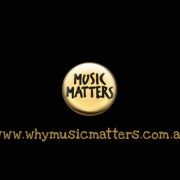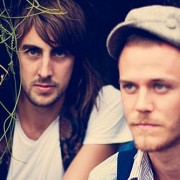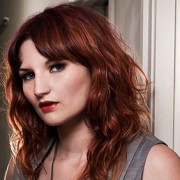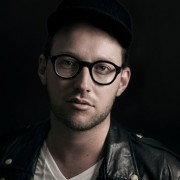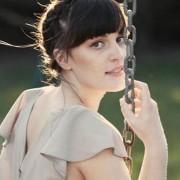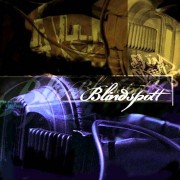
My good mate, Dan, had his first child, Frankie, last week. I was fortunate enough to be there for her first bath the next day. They used Frankie as the Demo Baby, to show everyone how the bathing situation works. In all the noise in a room full of people: crying babies, dazed mothers, confused fathers, visitors chatting and idiots like me taking photos; Frankie always knew where Dan was, and knew his voice amongst the noise. Seeing the deep connection between Dan and Frankie was really moving. And was kind of surprising, seeing that they had only really met each other the day before.
It made me start to wonder what it would sound like on those first few days out of the womb? After hearing everything in a sort of surround underwater sound. It would be nice to go back to this place, before I had an identity or a ‘taste’ in music, or an attachment to a certain genre or artist.
There are a whole list of ‘first time’ moments, that I think stay with us for the entirety of our lives. First kiss, first day at a new school, first time learning that a pet has died. The first time you drove off by yourself after getting your P plates. The first time you were pulled over by the cops. But there is no way I can remember the first time I became aware of music as something that could be constructed or contained in some way.
Everything is new for kids, and so there is no framework in which to judge the creative merit of music. It’s probably just all sound with differing decibel levels. Whether it’s the sound of a bird at the window or of the chippies next door telling tall stories while listening to Triple M. Our ‘taste’ in music is being formed by the chance encounters that we have from the very beginning. So what onslaught of sound it must be for a child born in ‘87, 4 days after the release of Joshua Tree, at the height of glam rock, the end of punk, and the beginning of grunge.
I have a vague memory that may be mine, or may be a combination of photos, and my mother’s stories. There was an ad for an instant coffee company, for a brand of coffee beans that were grown in Uganda. They had featured African music, djembes and joyful voices, and Ugandan women dancing. I don’t remember the song, but I remember the colours and the movement, and the pattern of the coffee packaging. My mum says that no matter where I was in the house, if I heard the ad come on the TV, I would come running in. As fast as a toddler can run in a nappy, just to stare at the screen. Maybe this is part of the reason I have some sort of an emotional connection to African music.
My grandmother worked in an orphanage in Uganda and both my parents are preachers, so gospel music was an important part of my upbringing. There is a lot of pain, and love, joy, anger, desire and other extremes in this music. So, this is how I grew to understand what music, as an expression, was designed to be. My dad started showing me some chords on his acoustic, when I was about 7, and I started piano lessons when I was 8. I met the drummer of the band I am in now, when I was 9. I made him a drum kit out of paint cans when I was 10, and told him he would play drums and I would play guitar. And 14 years later, that is what we are doing.
There is something so pure about kids playing music- before they realize what else is at stake. Before people start telling you that you can make money, or a career, or have the attention of popular girls as a result. In my short existence as a ‘touring musician’, I’ve found being in a band, and dealing with the business side, the creative egos, the back packer motels, can be really exhausting. But all of that is completely separate from the feeling of picking up your guitar in your living room, with your oldest mate on the drums, and making any sort of sound you want. And when those moments happen on stage, when you forget where you are, and you are just making sounds, you are reminded why you jump through all the other hoops to get to this place.
Up until last year, I had let the idea of becoming a full-time musician disappear completely. For about 5 years, I put my focus elsewhere, and tried to ignore that conflicting feeling I had every time I saw live music or bought a new CD. I was doing covert song writing, secretly, never showing anyone. And I always had my guitar in Melbourne, Brisbane, Sydney, Hobart, LA and every other city I lived in during this time. But I was convinced that there was no way that I could fit into this world of music, or more importantly, bring anything new to the table.
It was such a specific set of circumstances that led me back to playing music. And something that I will always be grateful for. It started, when I arrived back in Hobart, broke, after 6 months in LA. Alister was in a local band that was making a name for themselves, and they had a band van, which is a real and definite sign of success. We got a few friends together, and went up to the east coast of Tasmania, to a place called Douglas River. The land that we camped on belongs to a sheep famer, and the river runs down from the gorge, to the sea. We had a few acoustic guitars, a couple of Djembes, a campfire and a lot of voices. We had a few jams that went late into the night, and there is no one around, just the mountains, the lagoon, the clear night, sitting in the middle of a paddock of sunburnt grass. We did a lot of naked swimming in the canyons, and naked rock running down the river bed. It may sound like a 69 free love revival, and that’s exactly what it was.
When we came back to civilization, it felt a bit strange, wearing clothes, and walking around the concrete mess of Hobart. But I was convinced that I had to do something with music. We started busking down at Salamanca, on some of the open string tuning songs we had been improvising up at Douglas- and we started getting little crowds, which reminded me of that rush of live performance. So, I moved back to Sydney, joined a band, playing keyboards, still writing secretly. Eventually I met Pepa, (keyboardist/producer of Jinja Safari)- and the rest is the reason I am here writing a blog for you.
I don’t know if music really matters in the bigger scheme, other than how it affects the individual. At the end of the day music is just personal expression, and how people receive it is up to them. I don’t know if you can really change the world, or social structures with the ‘power of music’. Sure there have been some great political bands, that united an audience in their anger against oppression, but it’s not like any world leader heard a Rage Against the Machine lyric, and had an intense epiphany, that sparked an immigration reform.
Similarly, I wonder what would actually happen if the lead singer of band once famous for instance on nuclear energy, became a national minister for the environment. I wonder if he would change all the things he wanted to change? Or maybe it was just the sound of an impassioned young lawyer, expressing his emotional reaction to situations louder than everyone else, simple because he had a microphone and was at the front of a brilliant band.
And I certainly wouldn’t blame any young artist for doing that. Because, for me, I know music/lyric writing is sometimes just a way of saying those things that constantly run around in your thoughts, turning your head into a blender. Sometimes you get to a point when finally you just have to yell it out- You just hope that it’s in the right key.
I went to see Frankie again yesterday, just after feed time. She was doing a little yelling of her own. This was a treat, because she hasn’t formed the muscles of the oesophagus to keep food down just yet, so she threw up on my shoulder. I’m sure she didn’t really want to do it to me, it was just an automatic reaction. After that she was fine, and went back to looking around the room. She was taking note of everything- observing and learning by osmosis. We were watching her becoming ‘smarter’, forming a personality, ideals, emotional ties, and it was all happening right in my arms.
I want to keep my relationship to music as simple as possible.
Everything moves so fast in life, and it is just so easy to become self focused. No one can relate to a musician who is only thinking about their life and their problems. I am just one of 6.8 billion people. Just the sound of one drop in pouring rain. I don’t want music to be anything more than what it was when we played with a paint can drum kit and my dad’s acoustic nylon string guitar.


